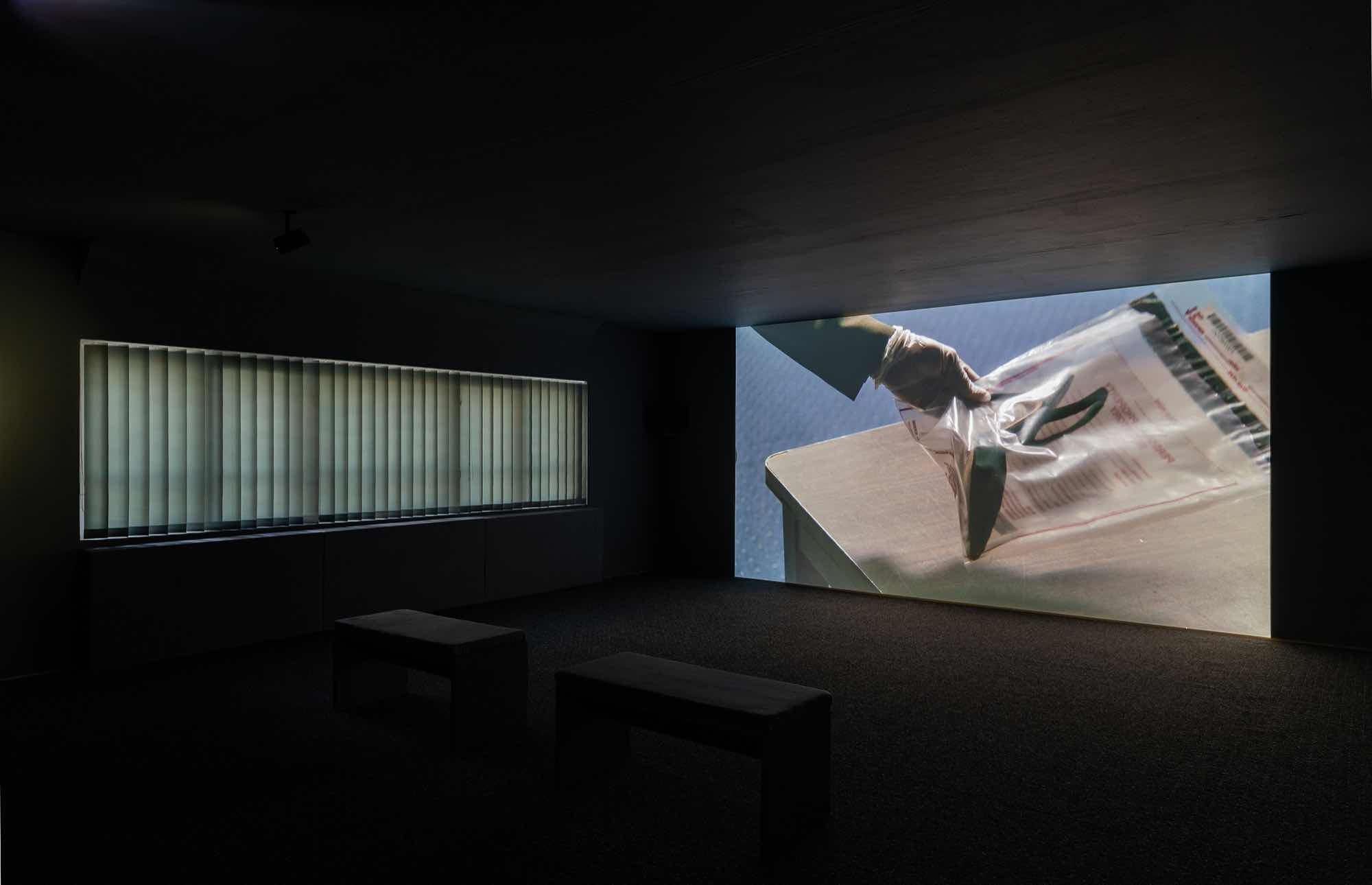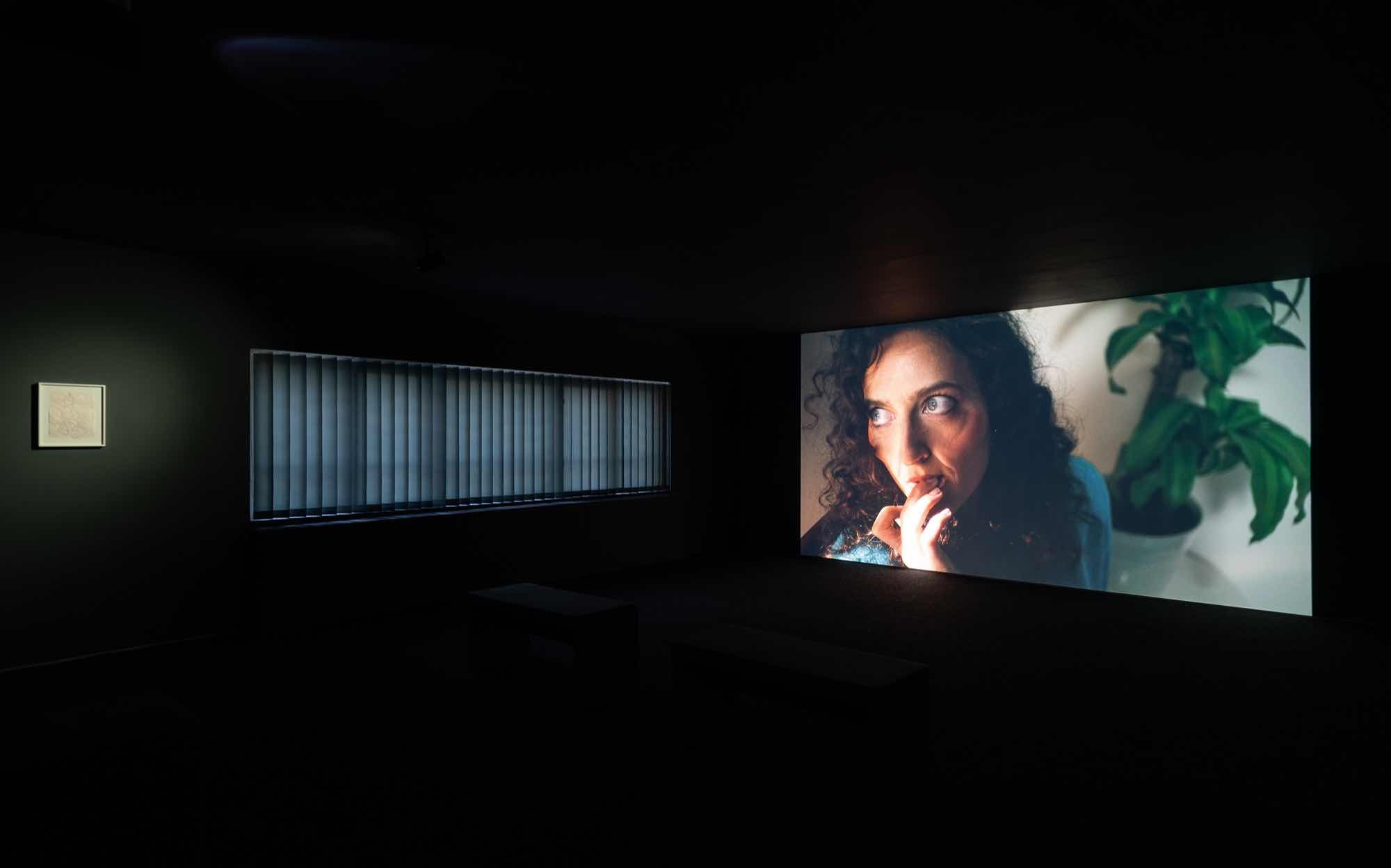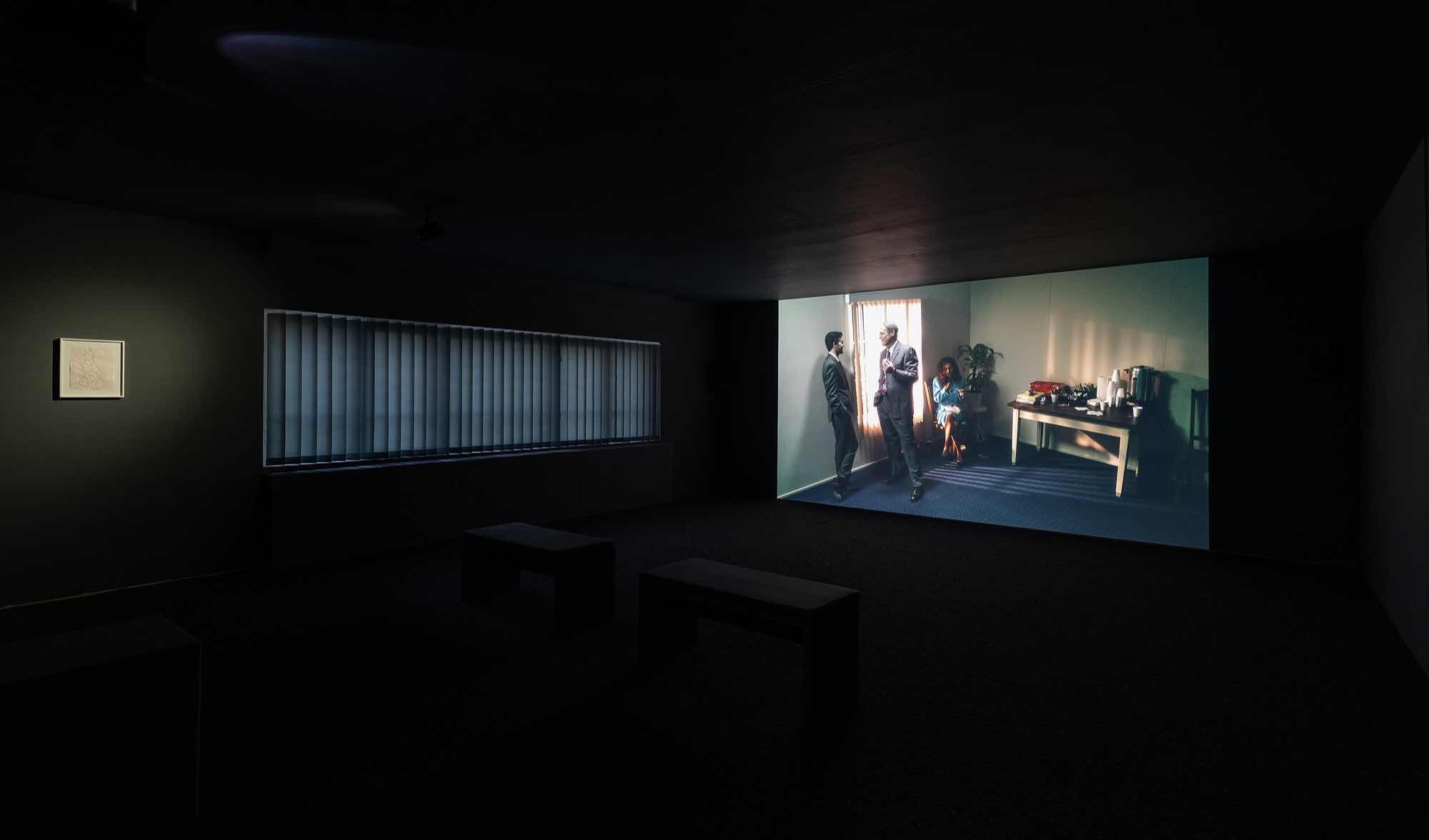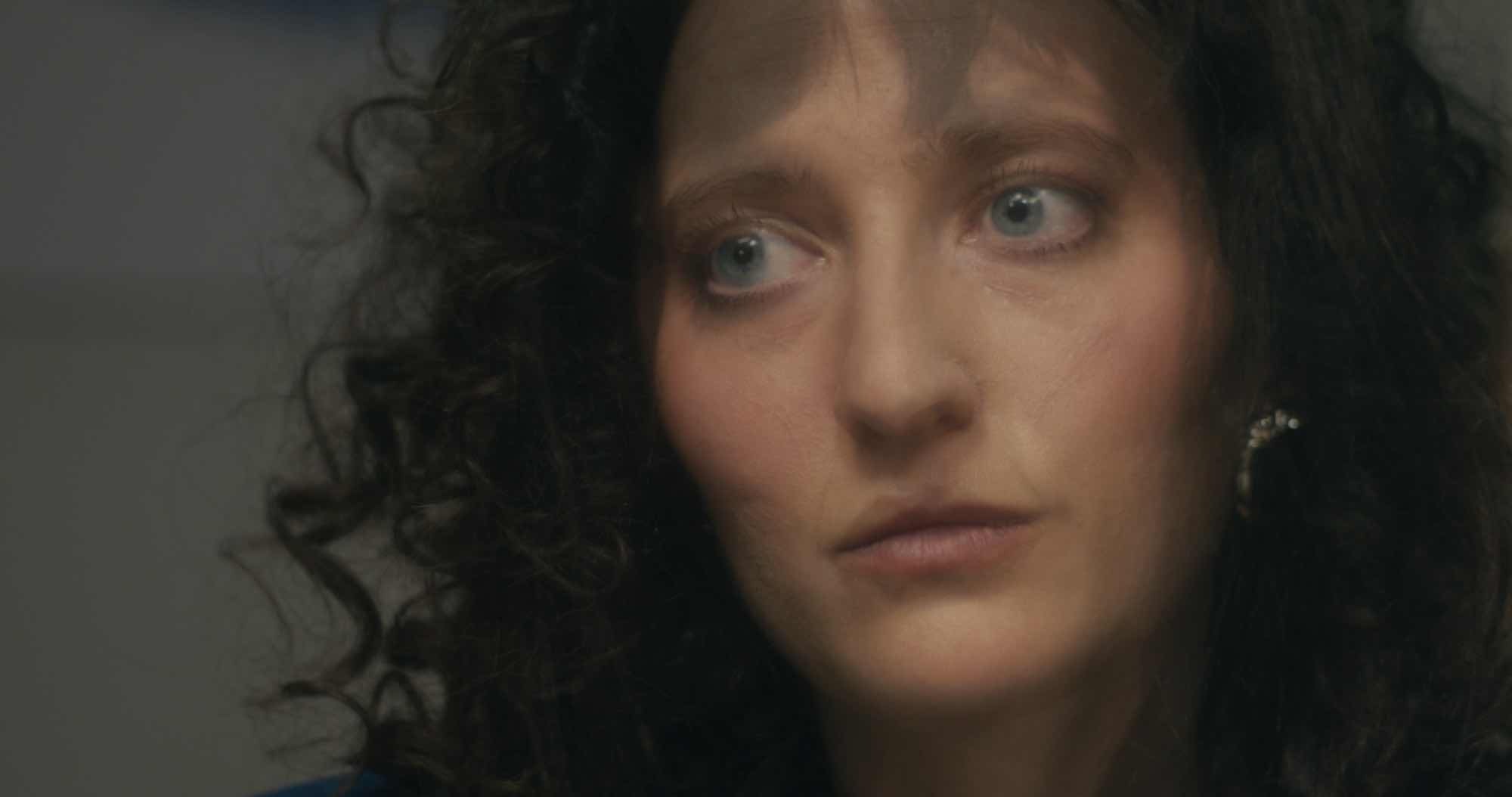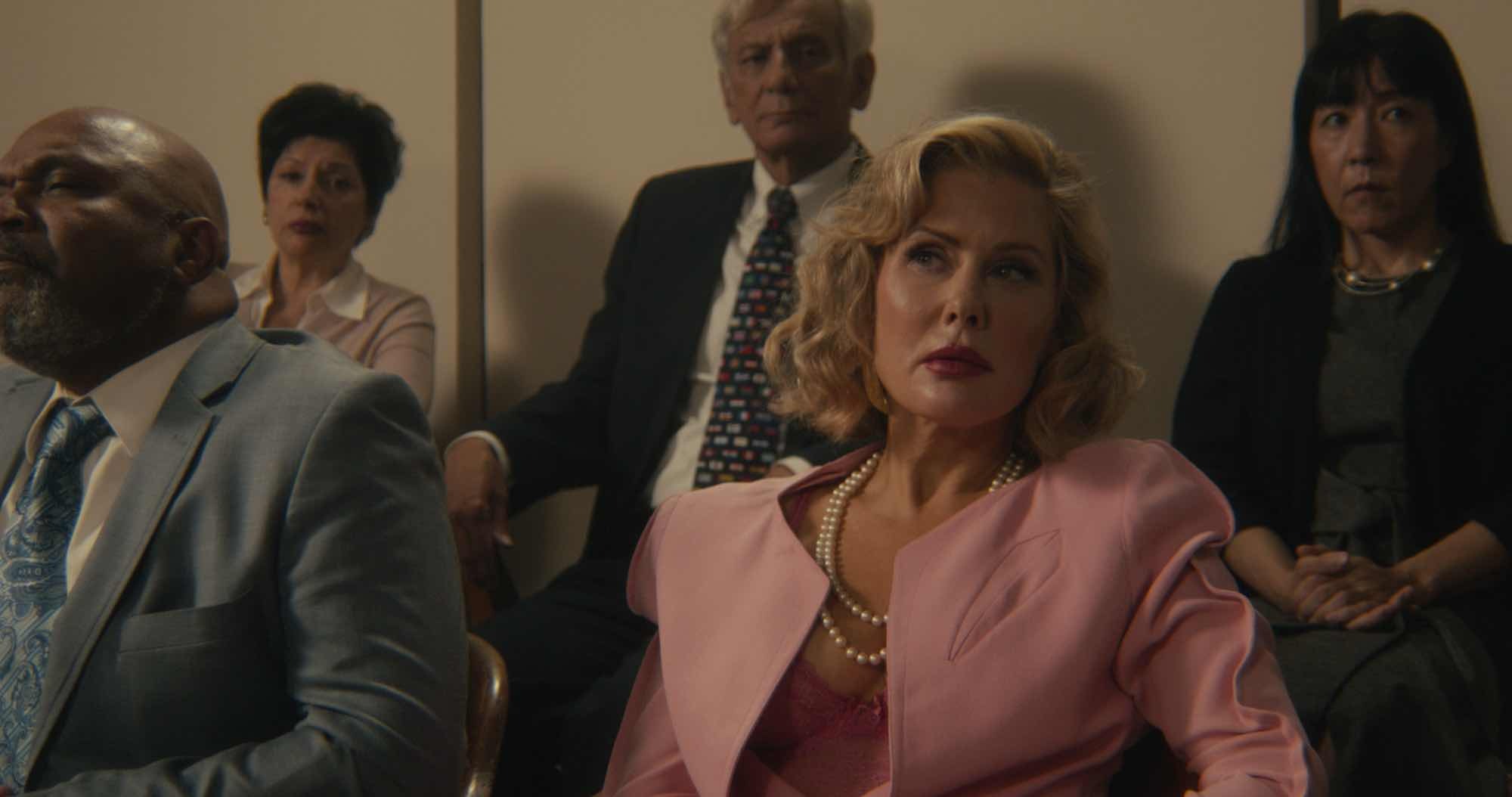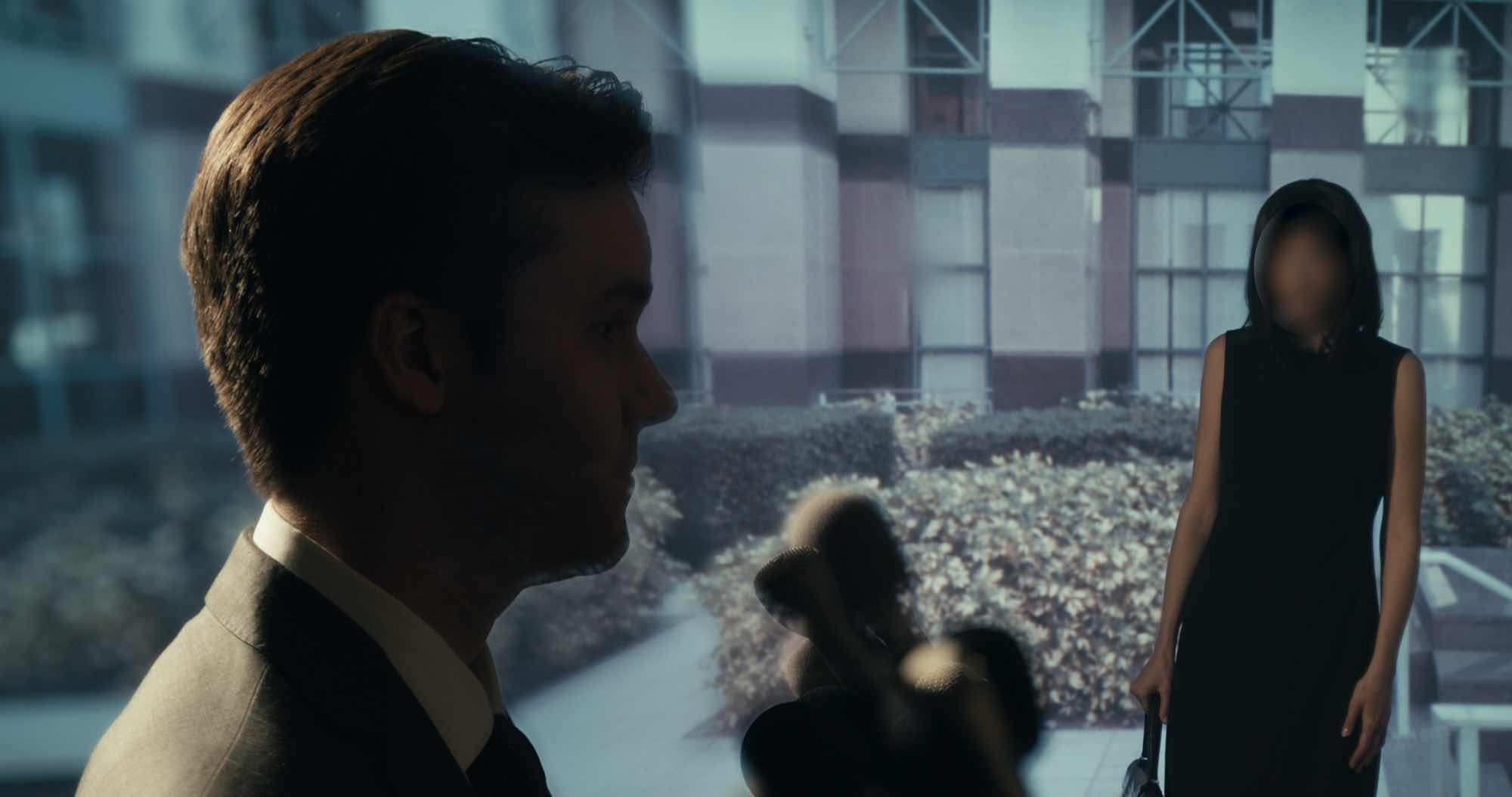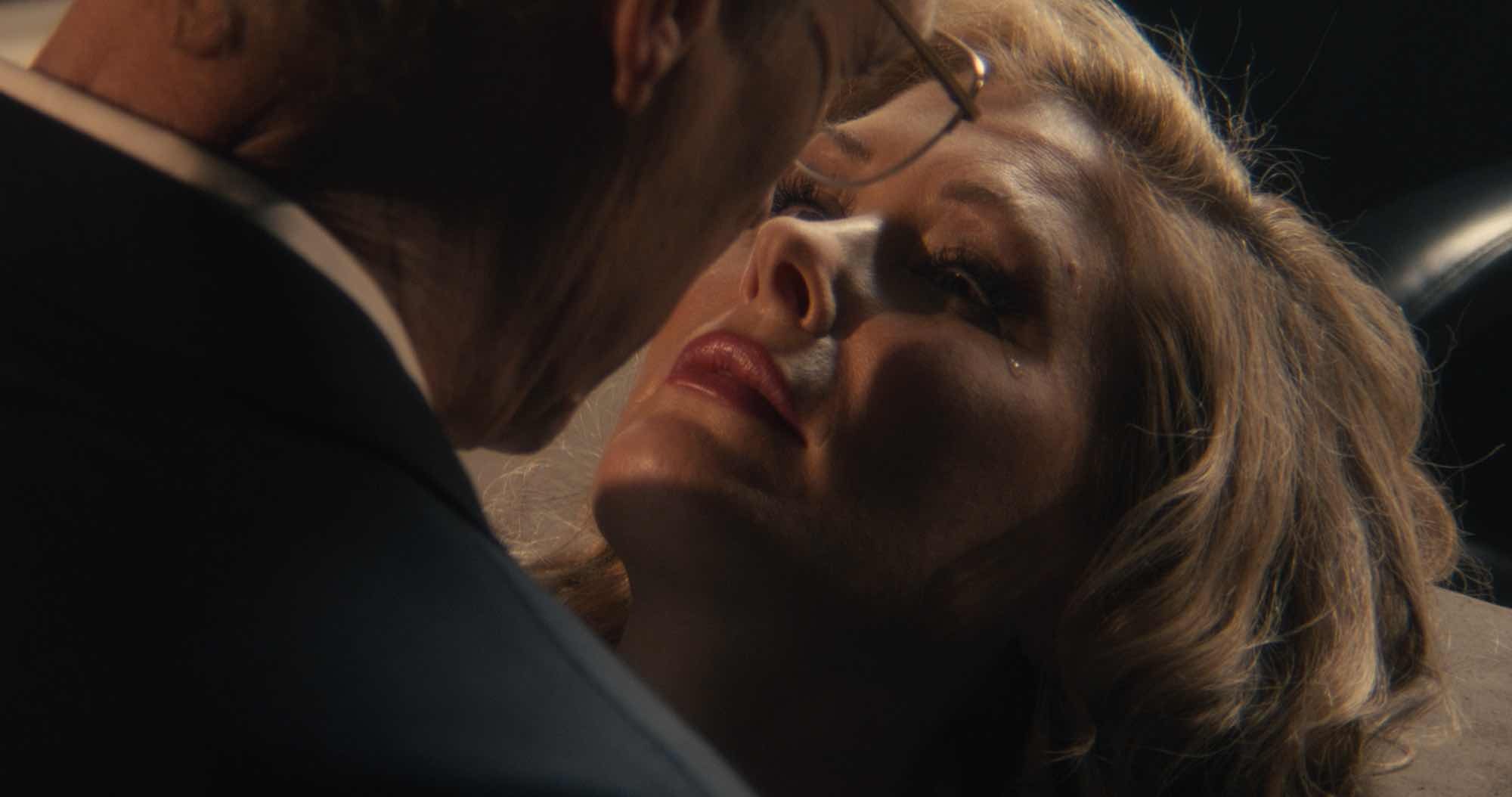Jordan Strafer
LOOPHOLE
17 Feb - 16 Apr 2023
New York-based artist Jordan Strafer’s primary medium is video. Her part-autobiographical, part-fictitious work reflects the complex nature of racial identity, gender, sexuality, class, and ‘Americanism.’ A key aspect of her practice is the thoughtful yet playful choreography of seemingly antagonistic emotions—both comical and tragic, intimate and factual, familiar and unfamiliar, repulsive and appealing situations appear in an unusually fluid manner. Drawing from true stories, she makes visible that realities are rarely dualistic.
In recent works, the artist less often appears as a performer herself. Make-up, scenery and props play independent roles alongside the protagonists. The recurrent use of stylistic devices such as homemade dolls, masks, face painting, miniature representations, or dummies emphasizes the scene’s artificial nature. Situations that often seem absurd redirect the focus from the plot to our own way of seeing and—through their clearly staged and alienated form—allow a critical stance towards a society defined by questionable moral ideas and injustice.
For her exhibition LOOPHOLE at the Secession, the artist has produced an eponymous new short film that deals with a romantic affair between a defense attorney and a juror amid a nationally publicized rape trial in Florida in the 1990s. Rather than merely reenacting the trial, the film focuses on the affair as a potential loophole in the justice system. Strafer depicts the loss of any structure and order and exposes the abuse of power, greed, and corruption that underlay the act of sexual violence. The film references the genre of the erotic thriller, which was popular at the time, and juxtaposes the deeply ambivalent feelings of fear and desire.
Beyond Strafer’s reference to Hollywood movies from the 80s and 90s and the use of transcripts of the court case, LOOPHOLE is set against the backdrop of her personal involvement. “I’m the fan, and the subject is my mom,” Strafer states in an interview with Aram Moshayedi on why she calls her work fanfiction. Strafer’s mother appears as the defense attorney’s assistant and the character ‘The Pen’ is supposed to be her. However, rather than simply including her as biographical detail, Strafers stresses the importance of involving real life and the specific as a source of the universal.
Strafer punctuates her plot with details taken from both fictional and actual material sources, not allowing us to clearly distinguish which one we are facing: her mother eating during a break, the sound of chewing clearly audible; her blue skirt suit with silk blouse chosen as a replica of the outfit she actually wore during the trial; the piece of toilet paper placed on a razor cut on the neck of the accused; the blurred face of the accuser, just how we may expect it in a documentary movie; a pantyhose handed over from one jury member to another; not to forget the facial modifications with silicone prosthetics usually invisible, now so obvious they almost become agents within their own right.
Strafer switches seamlessly between events that one would expect to see, that unquestionably belong on the screen, and those that the camera seems to have caught only by accident. Exploring the relationships between archetypical characters and employing aesthetics resembling soap opera television, however, opposed by almost arbitrary moments, Strafer leaves the audience in an oscillating space of necessary interpretation. She spares the audience neither from emotional nor from rational experience. Unable to define if one feels fine or awkward, reasonable or irrational, ambivalence takes over instead and before everything falters; the audience is left to solve their own moral and ethical dilemma.
A cooperation between Secession, Vienna; Index—The Swedish Contemporary Art Foundation, Stockholm; and KINDL—Centre for Contemporary Art, Berlin.
Curated by Christian Lübbert
In recent works, the artist less often appears as a performer herself. Make-up, scenery and props play independent roles alongside the protagonists. The recurrent use of stylistic devices such as homemade dolls, masks, face painting, miniature representations, or dummies emphasizes the scene’s artificial nature. Situations that often seem absurd redirect the focus from the plot to our own way of seeing and—through their clearly staged and alienated form—allow a critical stance towards a society defined by questionable moral ideas and injustice.
For her exhibition LOOPHOLE at the Secession, the artist has produced an eponymous new short film that deals with a romantic affair between a defense attorney and a juror amid a nationally publicized rape trial in Florida in the 1990s. Rather than merely reenacting the trial, the film focuses on the affair as a potential loophole in the justice system. Strafer depicts the loss of any structure and order and exposes the abuse of power, greed, and corruption that underlay the act of sexual violence. The film references the genre of the erotic thriller, which was popular at the time, and juxtaposes the deeply ambivalent feelings of fear and desire.
Beyond Strafer’s reference to Hollywood movies from the 80s and 90s and the use of transcripts of the court case, LOOPHOLE is set against the backdrop of her personal involvement. “I’m the fan, and the subject is my mom,” Strafer states in an interview with Aram Moshayedi on why she calls her work fanfiction. Strafer’s mother appears as the defense attorney’s assistant and the character ‘The Pen’ is supposed to be her. However, rather than simply including her as biographical detail, Strafers stresses the importance of involving real life and the specific as a source of the universal.
Strafer punctuates her plot with details taken from both fictional and actual material sources, not allowing us to clearly distinguish which one we are facing: her mother eating during a break, the sound of chewing clearly audible; her blue skirt suit with silk blouse chosen as a replica of the outfit she actually wore during the trial; the piece of toilet paper placed on a razor cut on the neck of the accused; the blurred face of the accuser, just how we may expect it in a documentary movie; a pantyhose handed over from one jury member to another; not to forget the facial modifications with silicone prosthetics usually invisible, now so obvious they almost become agents within their own right.
Strafer switches seamlessly between events that one would expect to see, that unquestionably belong on the screen, and those that the camera seems to have caught only by accident. Exploring the relationships between archetypical characters and employing aesthetics resembling soap opera television, however, opposed by almost arbitrary moments, Strafer leaves the audience in an oscillating space of necessary interpretation. She spares the audience neither from emotional nor from rational experience. Unable to define if one feels fine or awkward, reasonable or irrational, ambivalence takes over instead and before everything falters; the audience is left to solve their own moral and ethical dilemma.
A cooperation between Secession, Vienna; Index—The Swedish Contemporary Art Foundation, Stockholm; and KINDL—Centre for Contemporary Art, Berlin.
Curated by Christian Lübbert

